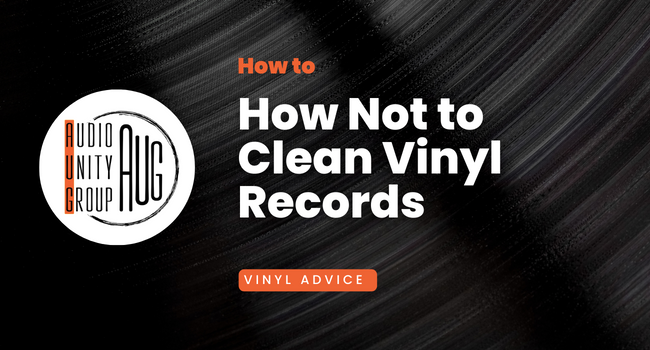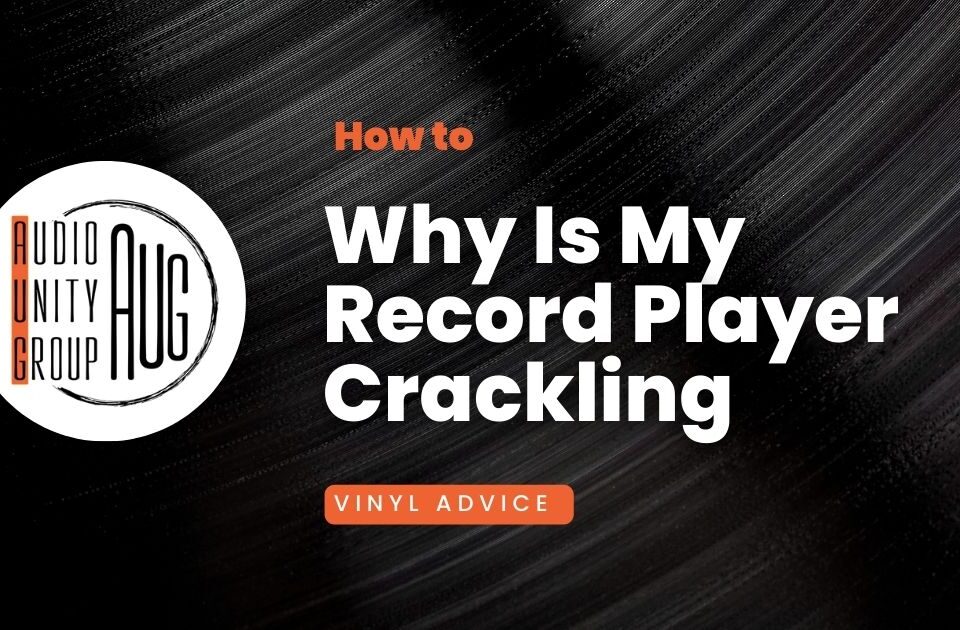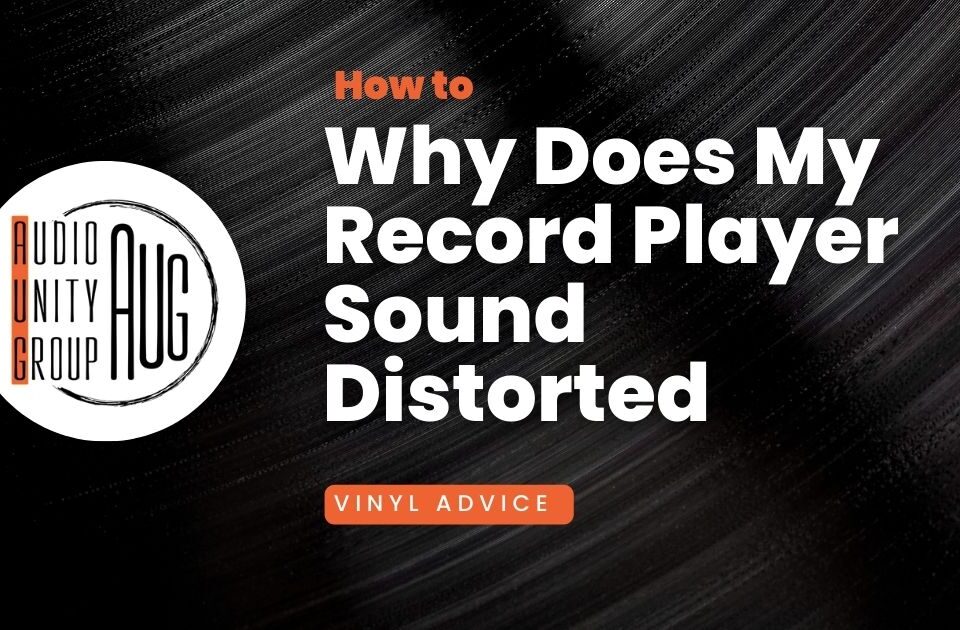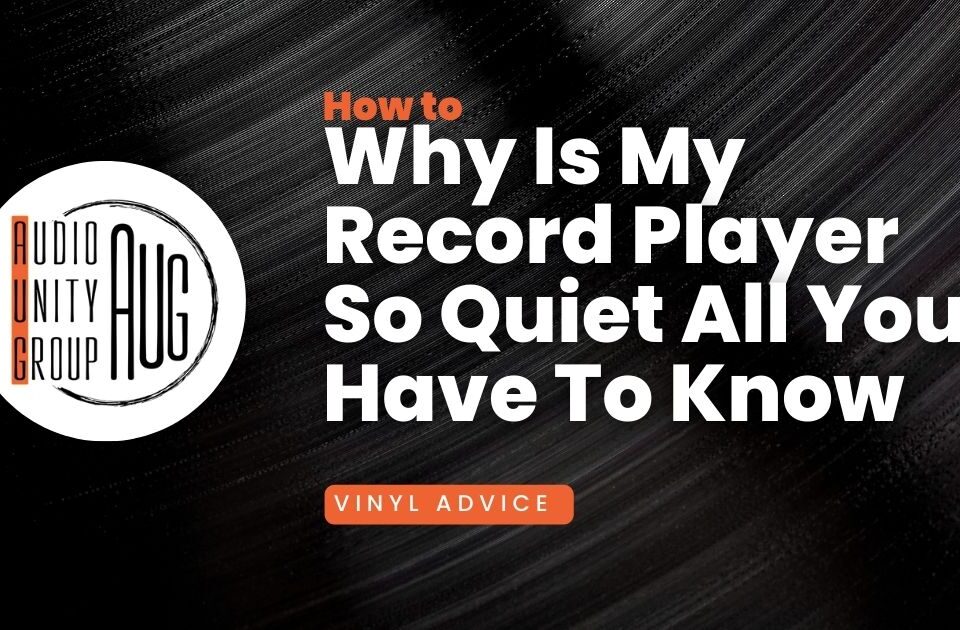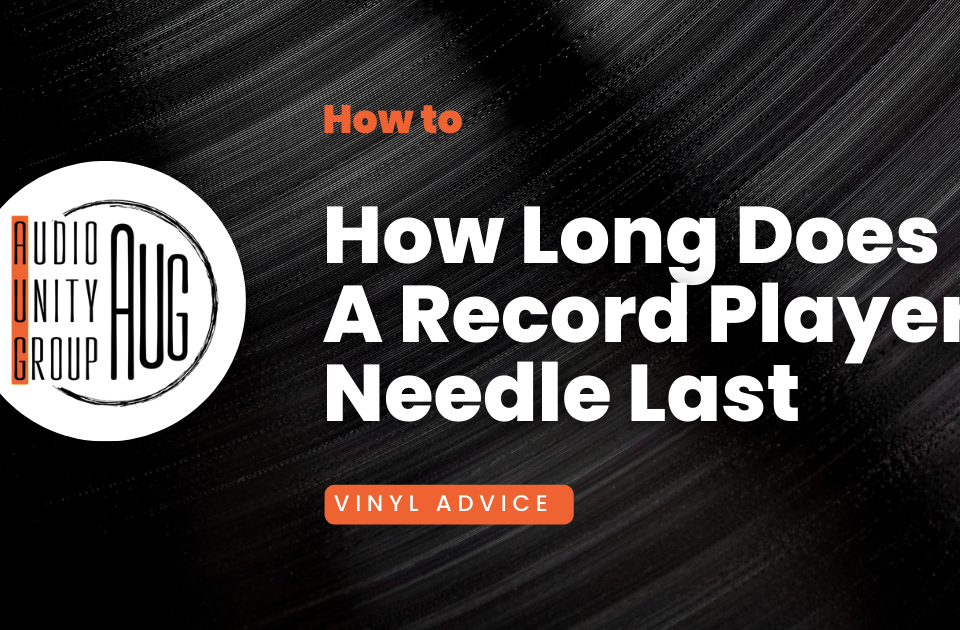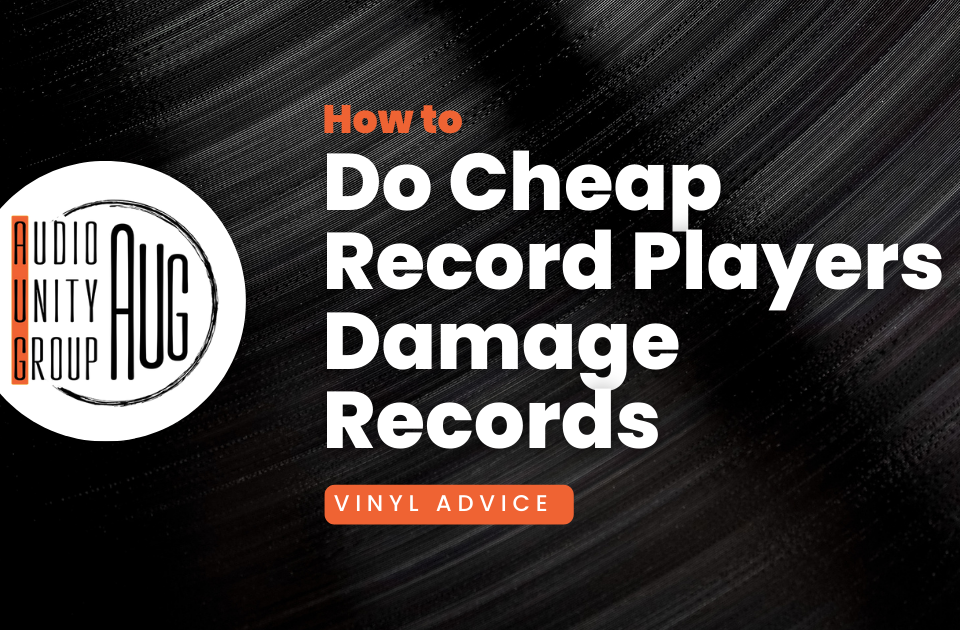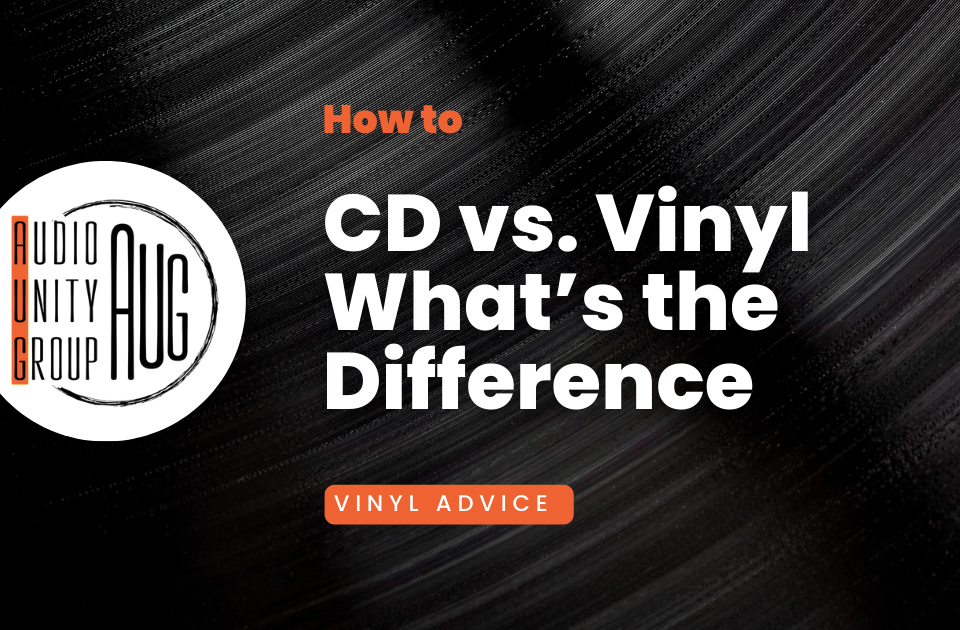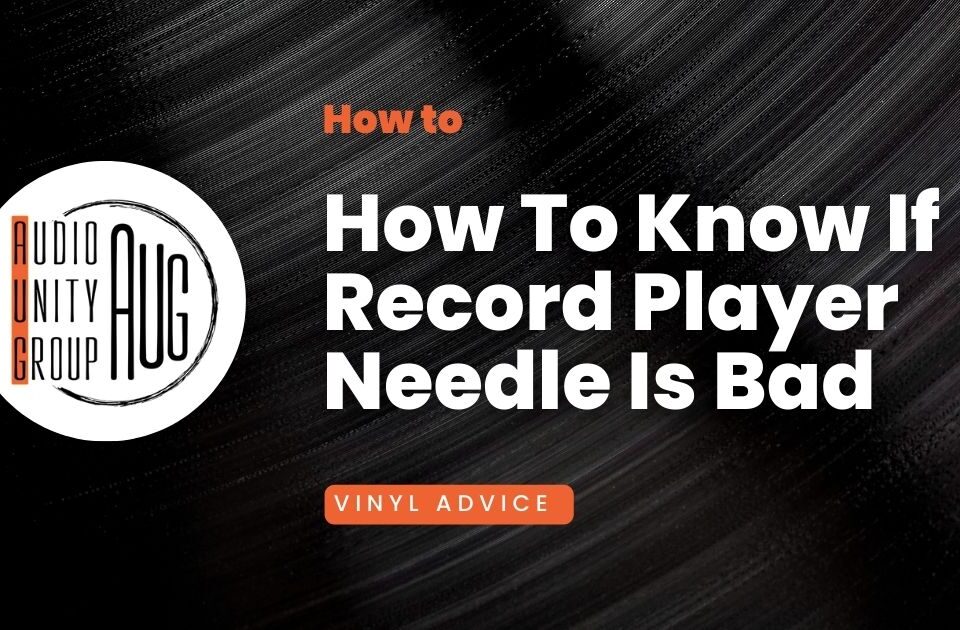Best Record Player with Preamp: Top Picks for 2025
May 10, 2023
Do Record Players Need Speakers: A Concise Guide
May 13, 2023Last Updated on May 28, 2023 by Tom S. Ray
It’s important to properly clean vinyl records, but there are certain methods you should carefully avoid.
Every record enthusiast knows the importance of keeping their precious collection in top condition – however, if the wrong cleaning techniques are used it can lead to irreparable damage and decreased sound quality.

Key Takeaways
- Avoid tap water, dish detergent and isopropyl alcohol when cleaning vinyl records as these can contaminate and damage them.
- Use a carbon fibre or microfiber cloth to clean the record surfaces without causing any scratches and avoid soft wet sponges that could ruin grooves.
- Invest in a specific purpose made solution for cleaning deeper seated debris such as Record Cleaner fluid designed specifically for several different types of turntables alongside using anti-static brushes to remove stubborn dust particles with greater efficiency.
- Before playing the record use an anti-static brush to collect larger pieces of dust and reduce charged build up – always be gentle while brushing over delicate grooves!

Mistakes To Avoid When Cleaning Vinyl Records
You not only have to clean your record player and needle but your wax too. Several mistakes should be avoided when cleaning vinyl records, such as the use of tap water, dish detergent or isopropyl alcohol to clean it. Let’s explore all of them.
Using Tap Water, Dish Detergent, Or Isopropyl Alcohol
To clean a vinyl record is an absolute no-no as these substances can contaminate and damage the grooves, leading to poor sound quality.
Tap water contains minerals that will leave residue on the record surface once it dries and dish detergent will create build up over time because of its high foaming characteristics.
Furthermore, if isopropyl alcohol is used in excess, it can cause permanent warping or delamination of the record due to its solvents effects – this means heat generated from playing the record risk melting or softening glue along with layers of plastic making up part of your favourite piece.
A much better way to protect your vinyl collection from these kind of damages is by using a microfiber cleaning cloth which picks up dust without causing any scratches on its delicate surface, an anti-static brush for deep cleaning dirt between the grooves or investing in appropriate cleaning solutions specifically made for records (most contain distilled water).
Using Soft, Wet Sponges
When attempting to clean a vinyl record, never use soft, wet sponges as this can do more harm than good.
Despite seemingly like an easy and convenient way of cleaning your beloved records, you may end up ruining the grooves of your record which could lead to poor sound quality or even permanent damage.
Soft sponges don’t have enough strength needed to remove dirt on the surface or deep into the groove with precision-like suction and could cause scratches in addition to leaving behind residue that adheres itself onto the surface of the vinyl resulting in skipping while playing.
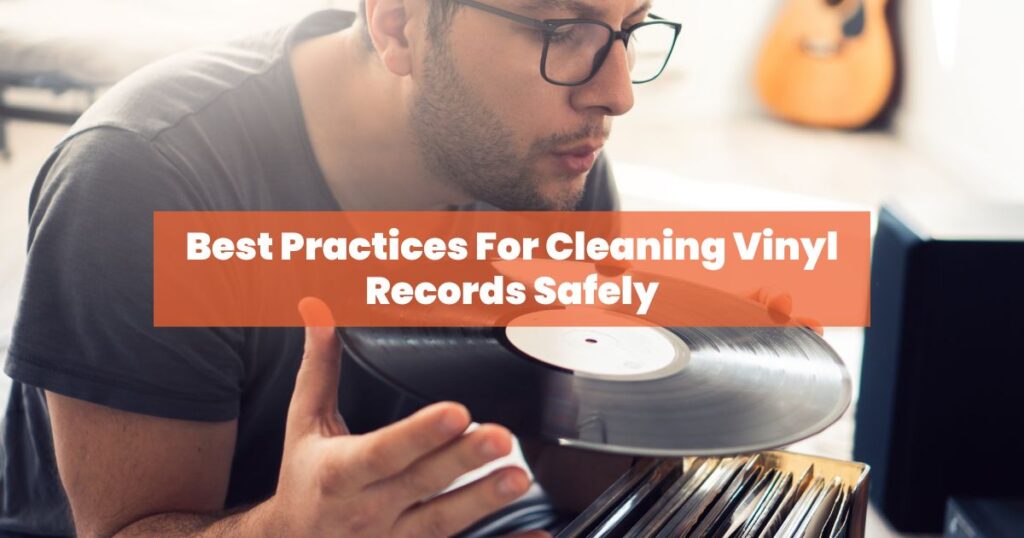
Best Practices For Cleaning Vinyl Records Safely
It is important to use the right cleaning products, techniques, and tools when cleaning your vinyl records.
Use A Microfiber Cleaning Cloth
When it comes to cleaning vinyl records, using a microfiber cloth is essential. This type of cloth is much softer and more absorbent than other materials which makes it ideal for safely removing dust, dirt and static from record surfaces without damaging delicate grooves.
Microfiber’s superior softness and gentle fibres allow for a thorough clean that won’t scratch or damage the record sleeve or label finishing — something other materials don’t offer as effectively.
Using hard sponges can leave permanent scratches in your records while household cleaners may risk leaving residue on the surface of your treasured collection pieces — neither are advisable when trying to keep your records in pristine condition!
To make sure you’re not damaging any of your beloved wax with cheap substitutes, use only a professional-grade microfiber cloth specifically designed for cleaning vinyl records.
Invest In A Record Cleaning Solution
Using household items such as tap water, dish detergent or isopropyl alcohol can cause irreparable damage to records and should be avoided.
High quality record cleaners not only clean the surface of records without damaging them, but they can also help reduce static and make your music sound better with more clarity and depth.
Good quality record cleaning solutions contain natural ingredients that won’t harm the grooves of your vinyl, while helping remove dirt, dust and other contaminants from the surface that would otherwise interfere with playback.
It’s also worth investing in some anti-static brushes too; these are specially designed so you don’t have to touch the delicate grooves of your records when removing any stubborn dust particles for start fidelity reproduction.
Use An Anti-static Brush
Using an anti-static brush, is one of the safest and most effective ways to neutralize static charges on vinyl records. Not only does it collect larger pieces of dust and dirt before they become stuck in the grooves, but it can also reduce static build up that attracts particles over time.
An anti-static brush is designed with ultra-fine bristles which create much less friction than velvet brushes or cleaning machines.
Friction creates an electrical charge when rubbing against your record, so using something with softer bristles will help prevent this from occurring.
It’s important to remember that an anti-static brush should be used lightly with sweeps across the surface of your record; you don’t want to drag dirt further down into its grooves by applying too much pressure while brushing!
When used properly, a carbon fiber antistatic brush is ideal for cleaning your vinyl collection since it will not scratch or damage either the record label or the album’s groove itself – making sure all those classic albums sound their best for many years of enjoyment!
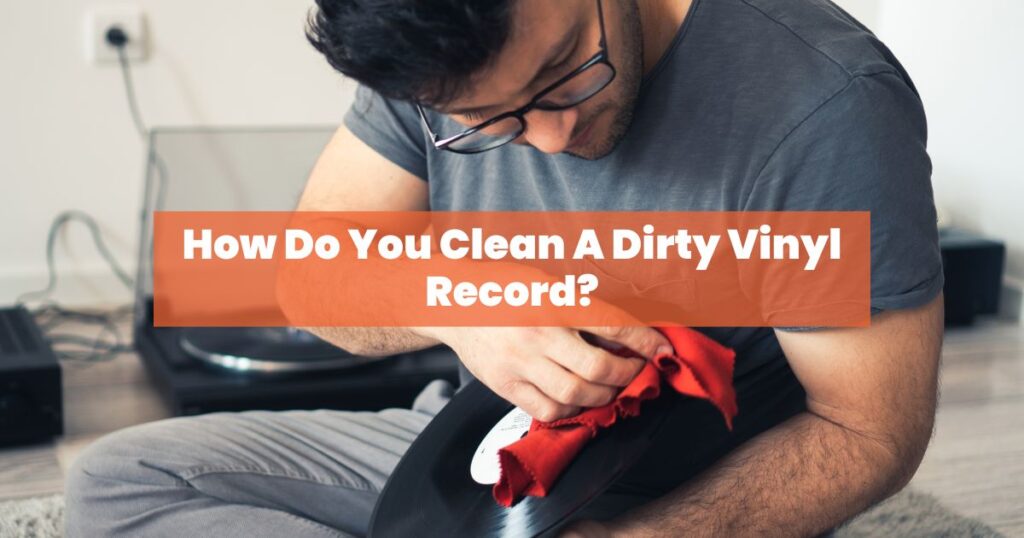
How Do You Clean A Dirty Vinyl Record?
Properly cleaning a vinyl record is an essential element to enjoying its sound and warranties the longevity of your favourite albums!
The most important aspect to bear in mind when cleaning records is that the wrong tools or techniques can do permanent damage.
Firstly, collecting the necessary items would help you properly clean your Vinyl record faster and safer. You will need a microfiber cloth (or lint-free cotton cloth if possible), distilled water, and either a long-haired brush or anti-static carbon fiber brush compatible with turntables.
Avoid abrasive materials such as wood glue because it can be detrimental to both sound quality and durability of records. If desired, you could use specially formulated homebrew/store bought record cleaner solution instead of distilled water; just remember to test this first on another album before using it on yours!
Use room temperature water when available – never warm nor hot – as sudden changes in temperature causes warping along edges where dust particles may get stuck more easily.
Next comes prep work involving both mental preparation and physical aspects… This means being extra careful while handling the vinyl record since any slips here could cause significant peril no matter how delicate you’re being with later stages too so keep those shaky hands steady!
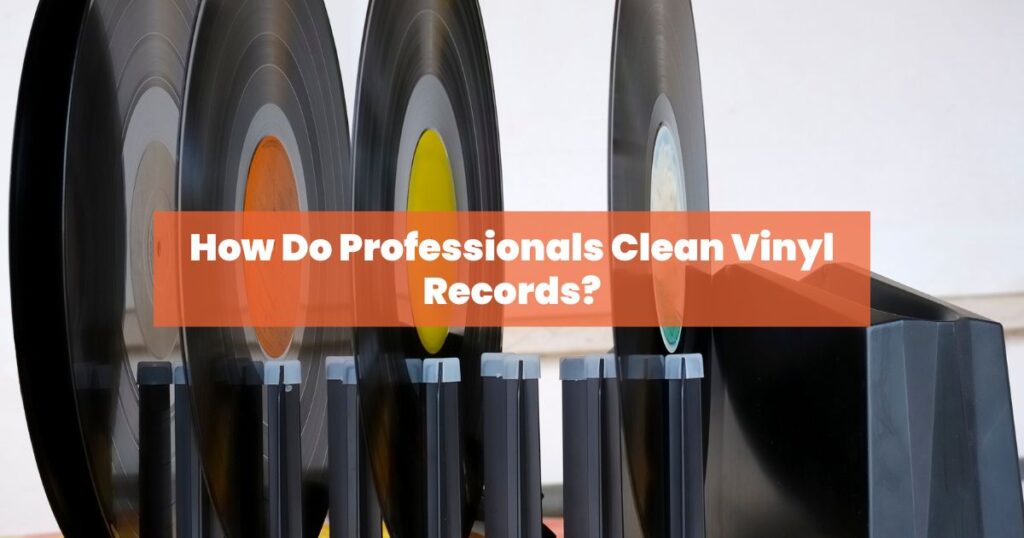
How Do Professionals Clean Vinyl Records?
Professionals have years of experience and knowledge when it comes to cleaning vinyl records.
The key is not only using the right techniques but also having the right tools.
To ensure that no damage comes to your valuable albums, professionals use specific methods such as a record vacuum cleaner with grooves plates specifically made for removing dust particles stuck in the vinyl grooves without damaging them.
This equipment is much more powerful than regular household vacuum cleaners, which means that it can move deeply into the recording to remove any dirt or gunk from hard-to-reach areas.
In addition to this specialized machine, professionals also usually use a carbon fibre brush and/or an anti-static brush before applying their preferred record cleaning product on a clean microfiber cloth.

How Often Should You Clean Vinyl Records?
Cleaning your vinyl collection regularly can help preserve the life of your records, as well as enhance their sound.
The frequency with which you should clean each record depends on several factors like how often it is used, where it’s stored and the environment around it.
If you play a record frequently, then weekly cleaning may be necessary to ensure that dust and dirt don’t accumulate too quickly.
However if a record has hardly been played or comes from a humidity-free space with no pet hair or dust bunnies, then perhaps less frequent exams are in order.
It is important to keep an eye out for when a record needs cleansing by checking for any visible signs of dirt such as gunk between tracks or obvious scratches along its grooves.
Lichen accumulations could also indicate that something more powerful than just brushing off debris may be required – usually using a specialised vinyl cleaning solution – before playing again and risking further damage to the surface of the disc itself due to particles getting stuck in the crevices and potentially scratching during future plays.
To protect your precious discs from deterioration over time then regular spin cycles plus maintenance is key, making sure they stay in optimal condition both visually and audio-wise so you can take pleasure in them for years to come!
All in All
Taking care of your vinyl records is an important part of preserving both the longevity and sound quality of a record. Using improper cleaning practices can lead to permanent damage, static build up or even poor sound quality.
I hope the above tips help you understand what to do with your records.
Thanks for reading.
Tom



